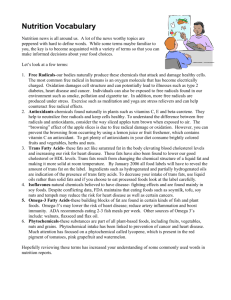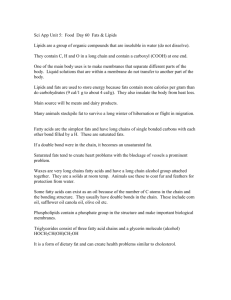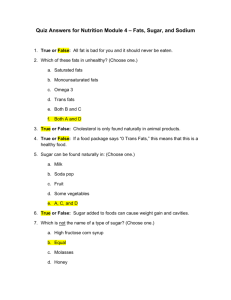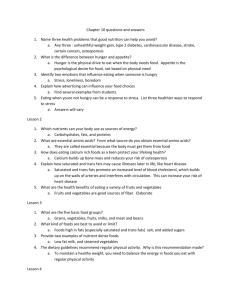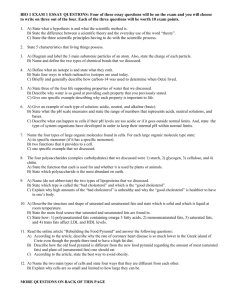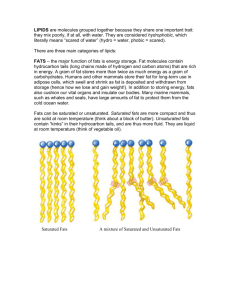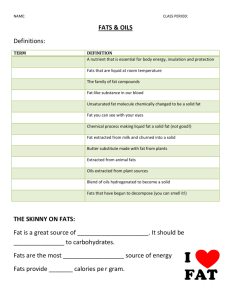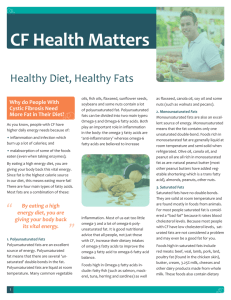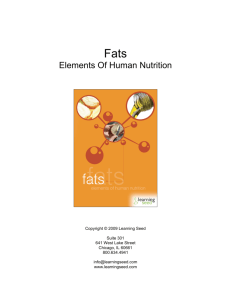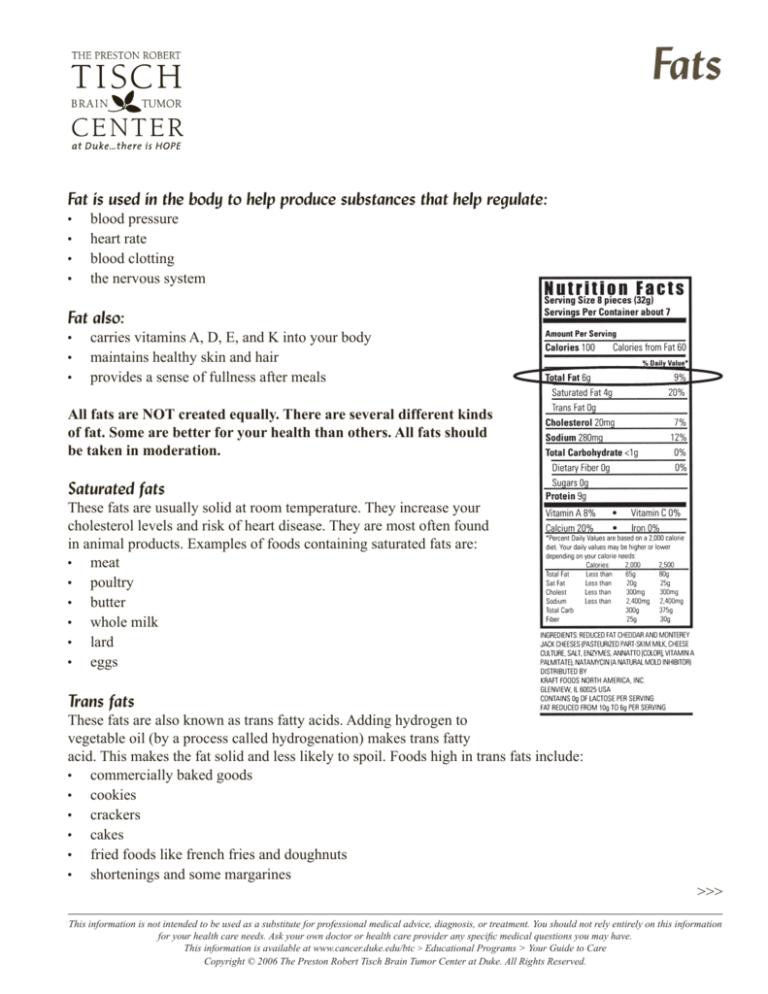
Fats
Fat is used in the body to help produce substances that help regulate:
•
•
•
•
blood pressure
heart rate
blood clotting
the nervous system
Fat also:
•
•
•
carries vitamins A, D, E, and K into your body
maintains healthy skin and hair
provides a sense of fullness after meals
All fats are NOT created equally. There are several different kinds
of fat. Some are better for your health than others. All fats should
be taken in moderation.
Saturated fats
These fats are usually solid at room temperature. They increase your
cholesterol levels and risk of heart disease. They are most often found
in animal products. Examples of foods containing saturated fats are:
• meat
• poultry
• butter
• whole milk
• lard
• eggs
Trans fats
These fats are also known as trans fatty acids. Adding hydrogen to
vegetable oil (by a process called hydrogenation) makes trans fatty
acid. This makes the fat solid and less likely to spoil. Foods high in trans fats include:
• commercially baked goods
• cookies
• crackers
• cakes
• fried foods like french fries and doughnuts
• shortenings and some margarines
>>>
This information is not intended to be used as a substitute for professional medical advice, diagnosis, or treatment. You should not rely entirely on this information
for your health care needs. Ask your own doctor or health care provider any specific medical questions you may have.
This information is available at www.cancer.duke.edu/btc > Educational Programs > Your Guide to Care
Copyright © 2006 The Preston Robert Tisch Brain Tumor Center at Duke. All Rights Reserved.
Polyunsaturated fats
These fats are usually liquid at room and refrigerator temperatures. When used INSTEAD of saturated fat,
they may help lower cholesterol. Foods high in polyunsaturated fat include safflower, sunflower, corn, soy,
and cottonseed oils. One type of polyunsaturated fat is Omega-3 fatty acid. It lowers blood pressure, protects
against heart attacks, and may even protect against some cancers. Examples of foods containing Omega-3
fatty acids are:
• salmon
• mackerel
• herring
• flax seeds
• soybeans
• canola oil
Monosaturated fats
These fats are liquid at room temperature, but may start to solidify when refrigerated. When used INSTEAD
of other fats, they can reduce your cholesterol. Examples of monosaturated fats include:
• olive oil
• peanut oil
• canola oil
Cholesterol
Cholesterol is a waxy fatlike substance that is found in every cell in the body. It is an essential component in
our cells. Too much cholesterol in your diet can lead to fatty deposits in your arteries. This can increase your
risk of heart attack and stroke. Examples of foods containing high cholesterol are:
• shellfish
• meat
• poultry
• eggs
• dairy products
• lard
• butter
Recommendations
•
•
•
•
•
•
•
Read labels.
Choose foods that are lower in saturated fat, trans fat, and cholesterol. Keep in mind that 5 percent of the
daily value (percent DV) or less is low and 20 percent or more is high.
Replace saturated and trans fats in your diet with monosaturated and polyunsaturated fats.
Choose vegetable oils (except coconut and palm oils).
Choose soft margarines (tub, liquid, or spray) instead of butter, solid shortenings, stick margarine, and
lard.
Substitute fish for some of the meat you eat.
Watch calories. All fats are high in calories.
Copyright © 2006 The Preston Robert Tisch Brain Tumor Center at Duke. All Rights Reserved.

